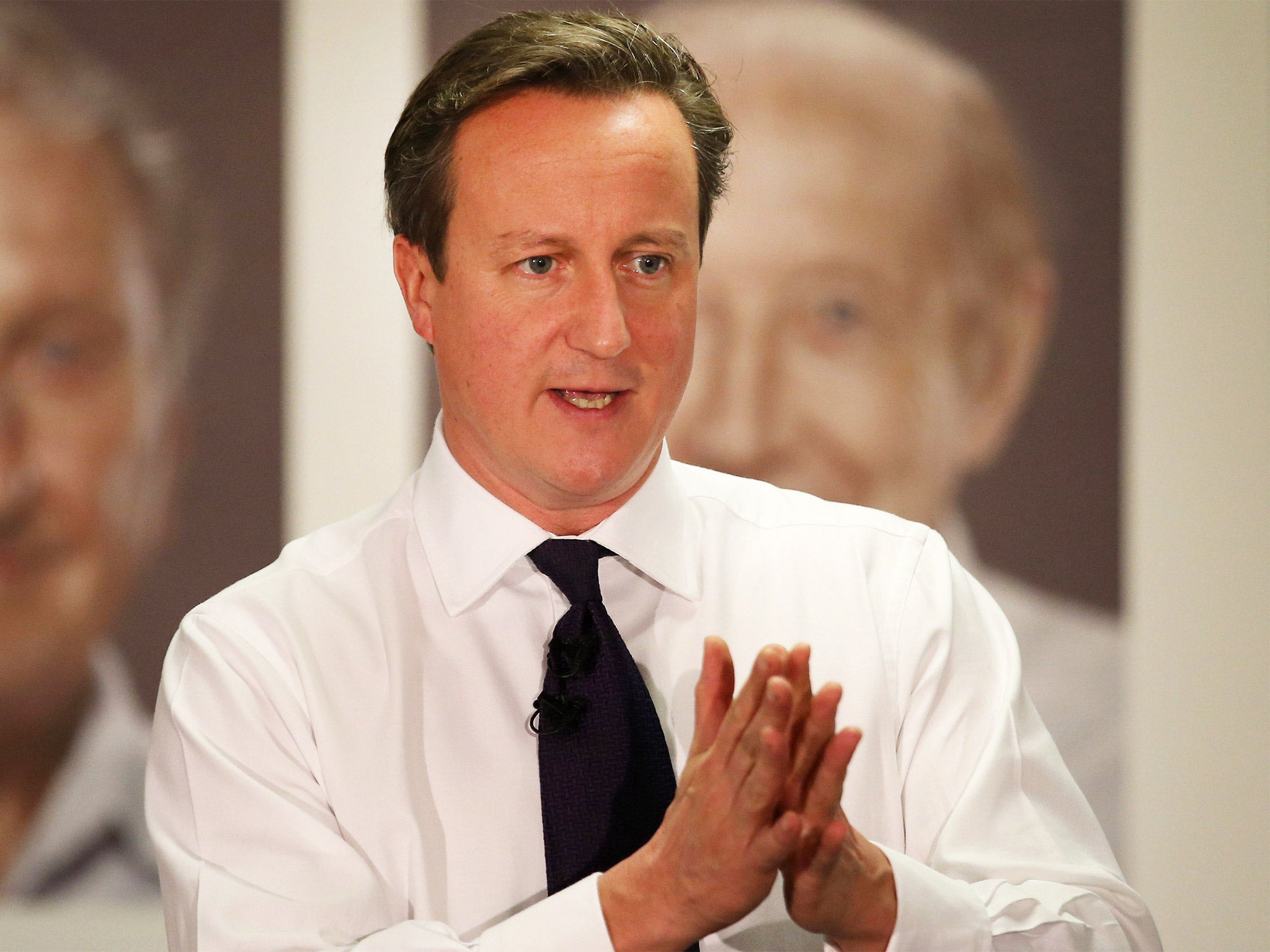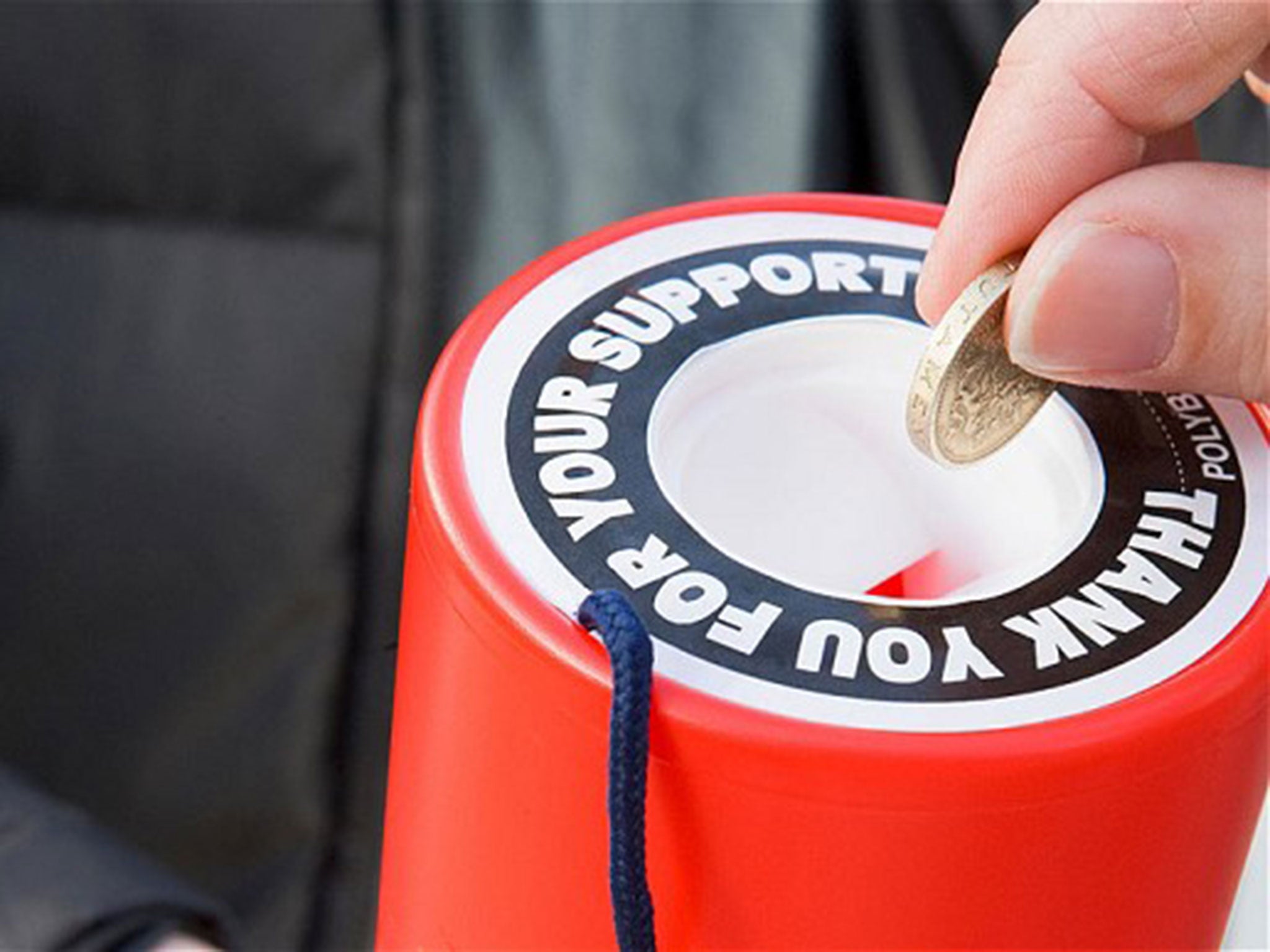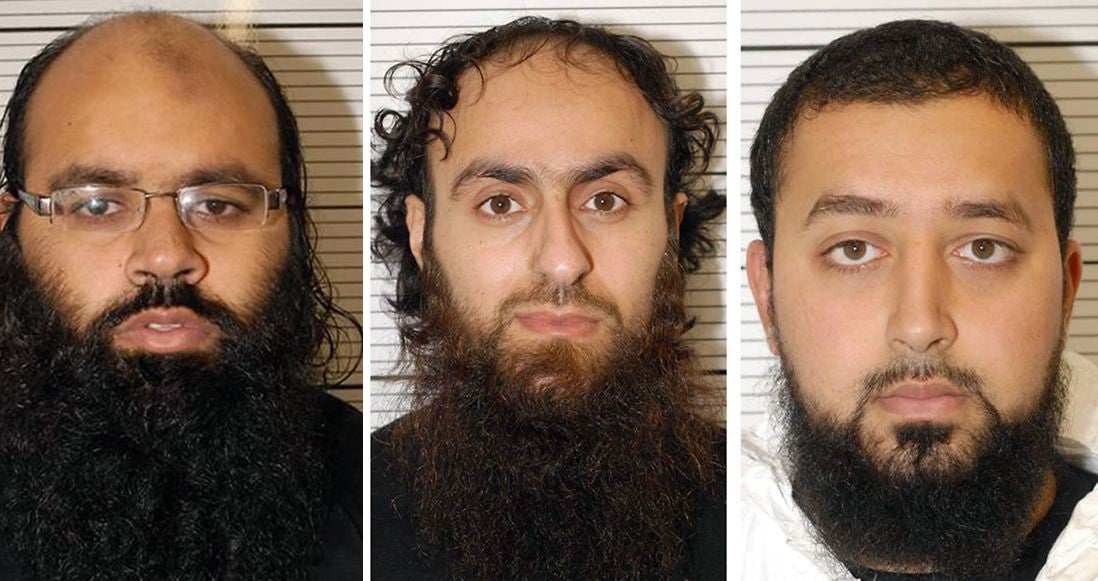Cameron takes action on terrorism funding in charity sector through new law
Prime Minister giving extra powers and £8m to sector to crackdown on terrorists and money launderers in charities

Your support helps us to tell the story
From reproductive rights to climate change to Big Tech, The Independent is on the ground when the story is developing. Whether it's investigating the financials of Elon Musk's pro-Trump PAC or producing our latest documentary, 'The A Word', which shines a light on the American women fighting for reproductive rights, we know how important it is to parse out the facts from the messaging.
At such a critical moment in US history, we need reporters on the ground. Your donation allows us to keep sending journalists to speak to both sides of the story.
The Independent is trusted by Americans across the entire political spectrum. And unlike many other quality news outlets, we choose not to lock Americans out of our reporting and analysis with paywalls. We believe quality journalism should be available to everyone, paid for by those who can afford it.
Your support makes all the difference.David Cameron has awarded extra powers and £8 million to a charity watchdog in an effort to “confront the menace of extremism” posed by bogus charities that divert cash to terrorism and other criminal activity.
As the Prime Minister prepared to chair the latest meeting of the Government’s Extremism Task Force on Wednesday, he claimed the money will help the UK to “become a country that stands even taller in the world”.
The £8m has been awarded to the Charity Commission, which last year faced sharp criticism for its failure to tackle abuses in the sector.
“I want us to confront the menace of extremism and those who want to tear us apart,” Mr Cameron said.

“Today’s changes will help make sure that when people donate to charity, their money always goes to genuinely good causes,” Mr Cameron said.
“They will help us become a country that stands even taller in the world, and prouder and stronger too,” he added.
Several individuals convicted of terrorism offences in Britain had raised funds in public, claiming to be fundraising for charitable causes, the majority of which the charities never received, the Government said.
Three British Islamists were jailed last year for planning mass suicide attacks to rival those of 9/11 and the 7 July bombings and had tried to fund their plot by posing as street collectors for the Muslim Aid charity organisation, raising £12,000.
In a draft bill, the Commission will be awarded powers to automatically ban on anyone with convictions of certain offences such as terrorism or money laundering from becoming a trustee in a charity.
The Protection of Charities Bill will also give the Commission the power to disqualify any trustee candidate they deem unfit, and to shut down any charities under investigation for mismanagement in order to protect public confidence, or to issue an official warning in less serious cases.

The Commission will also be able to stop people under investigation from resigning simply to avoid disqualification before returning to the sector in another guise, while the money will enable the body to tackle a range of abuses including terror financing, tax avoidance and fraud.
The Commission, which blames weak enforcement powers and a lack of resources for its performance, had also called on the Government to go further still in closing loopholes which allow convicted terrorists and money launderers to take senior positions in charities.
Sir William Shawcross, chairman of the Commission, welcomed the extra powers but warned that criminals and others would still be able to take up roles such as treasurers or finance directors unless disqualification powers were extended beyond trustees.
Sir William has described Islamic Extremism as the “most deadly” cause faced by the sector.
MPs also raised concerns about tax relief for charitable donations being used as avoidance and evasion schemes, with an estimated £170 million lost to the Exchequer in 2012/13.
"I welcome the Draft Bill. It will give us new powers which will help us to be a more effective regulator," Sir William said.
"The new power to issue an official warning, for example, will allow us to warn trustees that we are monitoring their compliance with the law in situations where more forceful intervention would not be appropriate.

"We will play our full part in the pre-legislative scrutiny and will continue to push for more measures included in the consultation to be included in the Bill."
The Commission said legislation should be introduced "at the earliest possible opportunity in the next Parliament" and expressed confidence that the safeguards would be extended.
Karl Wilding, director of public policy at the National Council for Voluntary Organisations, which represents charities, said: 'It's been clear for some time that the Charity Commission's enforcement work has not been as strong as it could be.
"We also know that it has also struggled to deal with routine queries from charities in a prompt manner.
"This investment and its plans to revamp its work are very welcome and we believe they have the potential to make a significant difference. It's crucial we have an effective regulator that deals quickly with any poor practice to help ensure the public can continue to trust charities.
"We supported the Commission's call for additional powers to help it deal with poor practice.
"We'll examine the legislative proposals to make sure they strike the right balance between giving the Commission the powers it needs to deal with serious problems, while respecting individual charities' right to make their own decisions about how best to run themselves."
Additional reporting by agencies
Join our commenting forum
Join thought-provoking conversations, follow other Independent readers and see their replies
Comments